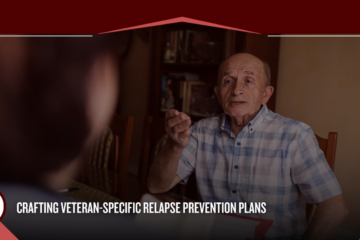Addiction is a complex condition that encompasses a wide range of physical, psychological, and social factors. Therefore, addressing the diverse needs of individuals struggling with addiction requires a comprehensive and integrated approach. Having embraced a multidisciplinary approach to addiction treatment in San Antonio, we have seen its benefits manifold. As the detox center Texas trusts, we are proud of our efforts to understand better and treat the complex nature of addiction. At Alamo Behavioral Health, we incorporate various disciplines and collaborate with experts from different fields, aiming to provide holistic care that targets all facets of addiction. Our comprehensive programs provide individuals with the tools and support necessary to achieve lasting recovery and improve their overall well-being. Join us today as we explore this principle in due depth.
What Is a Multidisciplinary Team in Addiction Treatment?
A multidisciplinary team in addiction treatment is a group of professionals from different disciplines who collaborate to provide comprehensive care to individuals struggling with addiction. This team typically includes physicians, therapists, counselors, and social workers, each bringing their unique expertise to the table.
In substance abuse treatment, where each person’s journey is unique, a multidisciplinary approach to addiction treatment in San Antonio provides a comprehensive support system that recognizes and addresses the diverse needs of individuals. By working together, these professionals can offer a holistic and integrated strategy that maximizes the chances of successful recovery and long-term well-being.

Effective communication and coordinated care among team members are paramount. Physicians may collaborate with therapists to ensure that medication management aligns with therapeutic goals. Counselors and social workers may work together to address the impact of social factors on recovery and provide holistic support. Regular case conferences and information sharing between team members ensure that individual treatment plans are comprehensive, cohesive, and tailored to the unique needs of each person. Coordinated care prevents fragmentation and improves treatment outcomes by providing a unified approach that addresses the interrelated physical, psychological, and social aspects of addiction. It also allows for timely adjustments and modifications to treatment plans based on the evolving needs and progress of individuals.
The Role of Each Team Member in Addiction Treatment
The strength of a multidisciplinary team lies in the collaboration and coordination among its members. Through regular communication and shared decision-making, they integrate their expertise and address the complex interplay of physical, psychological, and social factors that contribute to addiction. Any type of multidisciplinary approach to addiction treatment in San Antonio and beyond hinges on effective communication because of these synergistic needs.
Physicians play a vital role in assessing physical health, managing medications, and addressing any underlying medical conditions. They can offer extensive pharmacotherapy options, particularly in cases of dual diagnosis or chronic addiction.
Therapists utilize various evidence-based therapies to help individuals navigate the emotional and psychological aspects of addiction. They can drive established psychotherapy programs, such as PTSD treatment for veterans Texas, to enhance the entirety of the recovery journey.
Counselors provide guidance and support in developing coping skills, relapse prevention strategies, and behavior modification techniques. With thorough case management, they can also assist in every step of rehabilitation as needed for each phase.
Finally, social workers assist in addressing social determinants of addiction, such as housing, employment, and family dynamics. As they do, they can also link individuals to community resources, strengthening aftercare programs and preventing relapse.

What to Expect From a Multidisciplinary Approach to Addiction Treatment in San Antonio
Having highlighted the basics, the principle may still sound foreign to many. Indeed, even as research continues to demonstrate the efficiency of a multidisciplinary approach to addiction treatment, it can seem intimidating.
Thus, to hopefully set your mind at ease, here we can outline the basic process and what it entails.
The Treatment Process
First, during multidisciplinary addiction treatment, individuals can expect a comprehensive and structured process that addresses their unique needs. The treatment typically consists of several stages:
- A thorough assessment to gather information about the individual’s addiction history, physical and mental health, and social circumstances. This assessment helps determine the most appropriate treatment approach.
- Developing an individualized treatment plan collaboratively created by the multidisciplinary team and the individual seeking treatment. This plan outlines specific goals, interventions, and timelines. For the initial stages of rehab, this will typically include individual therapy for addiction in Texas and other states that embrace this approach.
- The beginning of the treatment process that incorporates a combination of medical interventions, evidence-based therapies, counseling sessions, and support groups. Regular monitoring and adjustments are made as needed to ensure the effectiveness and relevance of the treatment.

Treatment Modalities
Next, any multidisciplinary approach to addiction treatment in San Antonio will incorporate various treatment modalities to address different aspects of addiction. These can include:
- Medical interventions, such as detoxification to safely manage withdrawal symptoms and pharmacotherapy to support recovery.
- Therapy, employing evidence-based approaches such as cognitive-behavioral therapy (CBT), dialectical behavior therapy (DBT), or motivational interviewing (MI). Psychotherapy for addiction primarily aims to address psychological and emotional challenges.
- Counseling sessions, facilitated by counselors, to provide guidance, skill-building, and relapse prevention strategies. Such counseling should typically start from the earliest stages and persist throughout the journey.
- Support groups, such as 12-step programs or group therapy, to offer a supportive community where individuals can share experiences, receive encouragement, and develop a sober support network.
In every case, the multidisciplinary team collaborates to determine the most appropriate combination of modalities for each individual.
The Benefits of Holistic Care to Recovery
Physically, holistic care ensures that medical needs are met, withdrawal symptoms are managed, and any underlying health issues are addressed. Psychologically, therapy and counseling provide tools to manage cravings, cope with triggers, and develop healthy coping mechanisms. Socially, individuals receive support in rebuilding relationships, accessing community resources, and developing a strong support network. All such aspects of treatment can overlap and synergize, as well, through such modalities as group therapy for addiction in Texas.
In brief, holistic care recognizes that addiction affects every aspect of a person’s life. In turn, it acknowledges the importance of treating the whole person rather than just the symptoms of addiction.

Why a Multidisciplinary Approach to Addiction Treatment in San Antonio Supports a Stronger Recovery
Having outlined the benefits of this approach, here we can delve into further specifics. Drawing from NCBI case studies and other research, we can consolidate this approach’s distinct benefits.
A multidisciplinary approach to addiction treatment supports a stronger recovery by harnessing the benefits of collaboration, integration, and individualized care. The collaborative and integrated nature of a multidisciplinary team fosters enhanced support and accountability. Each team member brings unique skills and knowledge to the table, allowing for a more comprehensive and well-rounded treatment experience. The collective efforts of the team create a support system that considers all aspects of an individual’s well-being, providing a higher level of care.
Moreover, the multidisciplinary team offers individuals unmatched treatment consistency and flexibility. Regular communication and coordination among team members ensure that the treatment plan remains relevant and effective, with adjustments made as necessary. For example, progress during group therapy can indicate an individual’s readiness to engage in family therapy for addiction in Texas, or vice versa.
Who Needs a Multidisciplinary Approach to Addiction Treatment in San Antonio and Beyond?
We must also note that certain cases may require a multidisciplinary approach more often than others. This approach does have merit for virtually all cases of addiction, but the following warrant noting:
- Chronic addiction
- Dual diagnosis
- polydrug use

Cases of Chronic Addiction
First, cases of chronic addiction often necessitate a multidisciplinary approach due to the complex and long-standing nature of the condition. Chronic addiction is characterized by deep-rooted patterns of substance abuse, often accompanied by co-occurring mental health issues and social challenges.
A multidisciplinary team is crucial in addressing the diverse needs of individuals with chronic addiction, as it combines the expertise of professionals from various fields. This collaboration can begin as early as during medication assisted treatment, providing a robust foundation and cementing recovery throughout.
Cases of Dual Diagnosis
Second, cases of dual diagnosis often necessitate a multidisciplinary approach due to the complexity of addressing intertwined challenges. According to NIDA’s definition, dual diagnosis has individuals experience both substance use disorders and co-occurring mental health conditions.
As such, dual diagnosis requires the collaboration of professionals from various disciplines to treat both addiction and underlying mental health issues effectively. Treatment providers can achieve this through a multidisciplinary approach to addiction treatment in San Antonio and beyond, with promising results.
By combining their expertise, the team can develop a comprehensive treatment plan that recognizes the intricate interplay between addiction and mental health. In doing so, they can ensure that both conditions are addressed simultaneously. Dual diagnosis treatment centers San Antonio TX, thankfully, embrace this approach and can help ensure optimal recovery outcomes.
Cases of Polydrug Use
Lastly, cases of polydrug use often require a multidisciplinary approach due to the complexity and increased risks associated with simultaneous substance abuse. Polydrug use refers to cases where individuals engage in the misuse of multiple substances at once, developing concurrent addictions.

Polydrug use presents unique challenges, as different substances interact with the body and mind in distinct ways. A multidisciplinary team is essential in addressing the diverse needs of individuals with polydrug use, as it brings together professionals from various disciplines. From as early as during medical detox Texas programs, experts can collaborate to pave the optimal route forward.
Is a Multidisciplinary Approach Right For Me?
With the above in mind, here we can conclude with this common question. Whether a multidisciplinary approach to addiction treatment in San Antonio would benefit any given case can rightly cross your mind.
As outlined throughout this exploration, a multidisciplinary approach does come with ample benefits. It tends to ensure optimal recovery outcomes and can rarely, if ever, come with any downsides. However, whether it is right for you requires careful consideration of your specific circumstances and needs. If your case aligns with any of the aforementioned scenarios, such as chronic addiction, dual diagnosis, or polydrug use, a multidisciplinary approach may be beneficial.
However, it is important to emphasize that decisions regarding treatment should always be made on a case-by-case basis in consultation with professionals who can provide expert guidance. Seeking the advice of healthcare professionals who specialize in addiction treatment will help determine the most suitable approach for your unique situation. They will conduct a thorough assessment, consider all relevant factors, and develop a personalized treatment plan that addresses your specific needs. Remember, choosing the right approach is a crucial step towards achieving successful recovery, and seeking professional guidance ensures that you receive the most appropriate and effective care.

Alamo Behavioral Health Is by Your Side
The importance of a multidisciplinary approach to addiction treatment in San Antonio cannot be overstated. The complex nature of addiction calls for a comprehensive and integrated approach that addresses the diverse needs of individuals seeking recovery.
At Alamo Behavioral Health, we have witnessed firsthand the positive impact it has on our clients’ recovery outcomes. The collaboration and coordination among professionals from various disciplines allow us to provide holistic care that targets the physical, psychological, and social aspects of addiction. By embracing a multidisciplinary approach, our programs ensure that individuals receive personalized treatment plans tailored to their unique circumstances, leading to more effective and sustainable recovery.
If you or your loved ones would like to know more or are in need of our services, please feel free to contact us today. Our teams are always available and will happily assist you in any way possible.




